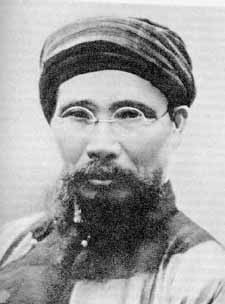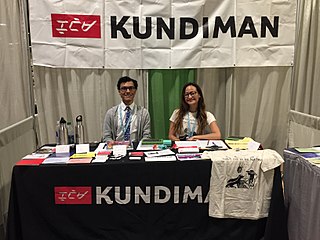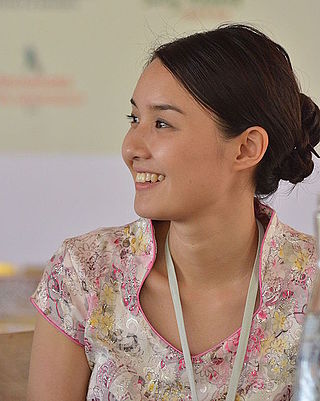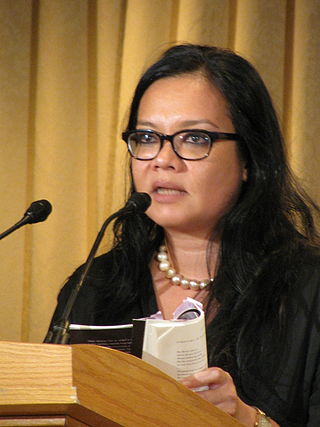Related Research Articles

Phan Bội Châu, born Phan Văn San, courtesy name Hải Thụ, was a pioneer of Vietnamese 20th century nationalism. In 1904, he formed a revolutionary organization called Duy Tân Hội. From 1905 to 1908, he lived in Japan where he wrote political tracts calling for the independence of Vietnam from French colonial rule. After being forced to leave Japan, he moved to China where he was influenced by Sun Yat-sen and gradually shifted his political position from monarchist to democrat. In 1912, he disbanded Duy Tân Hội to form Việt Nam Quang Phục Hội, modeled after Sun Yat-sen's republican party. In 1925, French agents seized him in Shanghai. He was convicted of treason and spent the rest of his life under house arrest in Huế.

The culture of Vietnam are the customs and traditions of the Kinh people and the other ethnic groups of Vietnam. Vietnam is part of Southeast Asia and the Sinosphere due to the influence of Chinese culture on Vietnamese culture.

Phan Châu Trinh, courtesy name Tử Cán (梓幹), pen name Tây Hồ (西湖) or Hi Mã (希馬), was an early 20th-century Vietnamese nationalist. He sought to end France's colonial occupation of Vietnam. His method of ending French colonial rule over Vietnam had opposed both violence and turning to other countries for support, and instead believed in attaining Vietnamese liberation by educating the population and by appealing to French democratic principles.
Chau Nguyen is a former Vietnamese-American news anchor most recently seen with KHOU-TV, before stepping down in December 2007 to become a social worker. She is now the Chief Public Strategies office for the Houston Area Women's Center.
Huỳnh Sanh Thông was a Vietnamese American scholar and translator.

Nguyễn Đình Chiểu was a Vietnamese poet who was known for his nationalist and anti-colonial writings against the French colonization of Cochinchina, the European name for the southern part of Vietnam.

Kundiman is a nonprofit organization dedicated to writers and readers of Asian American literature. Among its services are readings, workshops, mentorship programs, writing intensives, as well as a poetry prize and an annual writing retreat, the Kundiman Retreat.
Vietnamese poetry originated in the form of folk poetry and proverbs. Vietnamese poetic structures include Lục bát, Song thất lục bát, and various styles shared with Classical Chinese poetry forms, such as are found in Tang poetry; examples include verse forms with "seven syllables each line for eight lines," "seven syllables each line for four lines", and "five syllables each line for eight lines." More recently there have been new poetry and free poetry.

Alice Pung is an Australian writer, editor and lawyer. Her books include the memoirs Unpolished Gem (2006), Her Father's Daughter (2011) and the novel Laurinda (2014).
The Vietnamese Revolutionary Youth League, or Thanh Niên for short, was founded by Nguyen Ai Quoc in Guangzhou in the spring of 1925. It is considered as the “first truly Marxist organization in Indochina” and “the beginning of Vietnamese Communism”. With the support of the Chinese Communist Party and the Kuomintang left, from 1925 to 1927, the League managed to educate and train a considerable number of Marxist-Leninist revolutionaries, preparing the prominent leadership for the Communist Party of Vietnam and the Vietnamese Revolution. At the time, Vietnam was part of colonial French Indochina.
Benjamin Law is an Australian author, screenwriter and journalist. He is best known for his books The Family Law, a family memoir published in 2010, and the TV series of the same name. He hosts the radio programme and podcast Stop Everything! for ABC Radio National.

Bernice Chauly is Malaysian writer, poet, educator, festival director, actor, photographer and filmmaker.

Michelle Law is an Australian writer. She is known for the web series Homecoming Queens, and the book Sh*t Asian Mothers Say, co-authored by her brother Benjamin Law, and her 2017 play Single Asian Female. She is of Chinese descent.

Hủ tiếu or Hủ tíu is a Vietnamese dish eaten in Vietnam as breakfast. It may be served either as a soup or dry with no broth.

In this article, the surname is Nguyễn but is often simplified to Nguyen in English-language text.

Ann Liang is a Chinese-Australian writer. She will also serve as the executive producer for a television adaptation of her novel If You Could See The Sun.
Pauline Nguyen is an Australian author and restaurateur.
References
- ↑ Reviewer, Farah Farouque (2008-06-23). "Growing up Asian in Australia". The Age. Retrieved 2022-07-03.
- ↑ Growing Up Asian in Australia by Alice Pung. 2009-04-27.
- ↑ "Powerful life stories from the Growing Up series". Black Inc. 2020-07-16. Retrieved 2022-07-03.
- ↑ "Understanding Our Perceptions of Asian Americans". Asia Society. Retrieved 2022-07-03.
- ↑ "The Difference between US & UK Asians in the West". DESIblitz. 2021-12-01. Retrieved 2022-07-03.
- ↑ "The original introduction to "Growing Up Asian in Australia"". Peril magazine. 2009-11-26. Retrieved 2022-07-03.
- ↑ "Growing up Asian in Australia". ABC Radio National. 2020-08-14. Retrieved 2022-07-03.